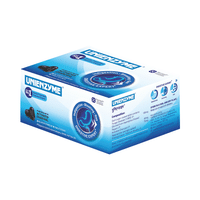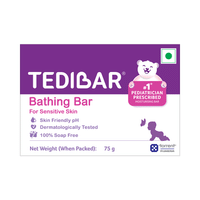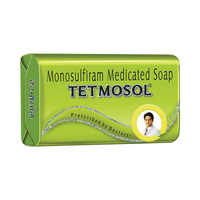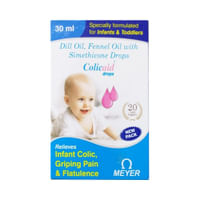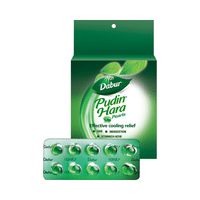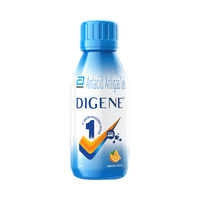Rs.1114for 1 vial(s) (1 Injection each)
food interaction for Ciractam
alcohol interaction for Ciractam
pregnancy interaction for Ciractam
lactation interaction for Ciractam
food
alcohol
pregnancy
lactation
No interaction found/established
It is not known whether it is safe to consume alcohol with Ciractam 1.5gm Injection. Please consult your doctor.
CONSULT YOUR DOCTOR
Information regarding the use of Ciractam 1.5gm Injection during pregnancy is not available. Please consult your doctor.
CONSULT YOUR DOCTOR
Information regarding the use of Ciractam 1.5gm Injection during breastfeeding is not available. Please consult your doctor.
CONSULT YOUR DOCTOR
SALT INFORMATION FOR Ciractam
Cefpirome(1000mg)
Uses
Cefpirome is used in the treatment of bacterial infections. It is used for short-term treatment of bacterial infections of urinary tract, skin and soft-tissue, blood, abdomen, genital and lungs (pneumonia). It is also used to prevent infections after surgery.
How it works
Cefpirome is an antibiotic. It kills bacteria by preventing them from forming the bacterial protective covering (cell wall) which is needed for them to survive.
Common side effects
Rash, Itching, Nausea, Vomiting, Headache, Fever, Diarrhea
Sulbactam(500mg)
Uses
Sulbactam is used in the treatment of severe bacterial infections and bacterial infections. It treats severe bacterial infections (most commonly pneumonia, bacteremia and skin and skin structure infections) caused by the pathogen Acinetobacter baumanii.
How it works
Sulbactam is a beta-lactamase inhibitor. It works by blocking an enzyme called beta lactamase produced by bacteria to inactivate antibiotics. Sulbactam is frequently combined with beta-lactam antibiotics, such as ampicillin, cefoperazone, meropenem. As a single medicine, it treats infection caused by a type of bacterium called Acinetobacter baumanii. This activity is mediated by its interaction with certain proteins.
Common side effects
Diarrhea, Injection site pain
SUBSTITUTES FOR Ciractam
9 Substitutes
9 Substitutes
Sorted By
 Rs. 842.81save 25% more per Injection
Rs. 842.81save 25% more per Injection Rs. 1682.81pay 50% more per Injection
Rs. 1682.81pay 50% more per Injection Rs. 1078.13save 4% more per Injection
Rs. 1078.13save 4% more per Injection Rs. 1265.63pay 13% more per Injection
Rs. 1265.63pay 13% more per Injection Rs. 904.69save 24% more per Injection
Rs. 904.69save 24% more per Injection
Expert advice FOR Ciractam
- Your doctor has prescribed Cefpirome to cure your infection and improve your symptoms.
- Do not skip any doses and finish the full course of treatment even if you feel better. Stopping it early may make the infection to come back and harder to treat.
- Discontinue Cefpirome and inform your doctor immediately if you get a rash, itchy skin, swelling of face and mouth, or have difficulty in breathing.
- Diarrhea may occur as a side effect but should stop when your course is complete. Inform your doctor if it doesn't stop or if you find blood in your stools.
- Avoid consuming alcohol while taking Cefpirome as it may cause increased side effects.
- Your doctor has prescribed Cefpirome to cure your infection and improve your symptoms.
- Do not skip any doses and finish the full course of treatment even if you feel better. Stopping it early may make the infection to come back and harder to treat.
- Take it with food to avoid an upset stomach.
- Diarrhea may occur as a side effect but should stop when your course is complete. Inform your doctor if it doesn't stop or if you find blood in your stools.
- Avoid consuming alcohol while taking Cefpirome as it may cause increased side effects.
- Discontinue Cefpirome and inform your doctor immediately if you get a rash, itchy skin, swelling of face and mouth, or have difficulty in breathing.
Frequently asked questions FOR Ciractam
Cefpirome
Q. What if I don't get better after using Cefpirome?
Inform your doctor if you don't feel better after finishing the full course of treatment. Also, inform him if your symptoms are getting worse while using this medicine.
Q. How long does Cefpirome takes to work?
Usually, Cefpirome starts working soon after taking it. However, it may take some days to kill all the harmful bacteria and make you feel better.
Q. Can the use of Cefpirome cause diarrhea?
Yes, the use of Cefpirome can cause diarrhea. It is an antibiotic which kills the harmful bacteria. However, it also affects the helpful bacteria in your stomach or intestine and causes diarrhea. If diarrhea persists, talk to your doctor about it.
Sulbactam
Q. Why is Sulbactam added to other antibiotics?
Sulbactam added to other antibiotics like ampicillin, cefoperazone, etc., because Sulbactam contains Sulbactam, a beta-lactamase inhibitor, which reduces resistance and enhances the activity of other antibiotics like ampicillin, cefoperazone, etc., against the bacteria.
Q. Who should not take Sulbactam?
Sulbactam should not be taken by an individual if he/she had an allergic reaction to ampicillin, sulbactam, or any penicillin antibiotic (such as penicillins or cephalosporins), or if he/she has a history of liver problems caused by ampicillin/sulbactam.
Q. What should I discuss with my doctor before receiving Sulbactam?
Before taking Sulbactam, you should tell your doctor if you have ever had an allergic reaction to Sulbactam or any similar medicine. Inform the doctor if you have any type of allergy, asthma or breathing problems, heart disease or kidney disease. Let your doctor know about all the medicines that you may be taking as they may affect or be affected by Sulbactam. Pregnant or breastfeeding mothers should also seek their doctor’s advice before taking Sulbactam.














